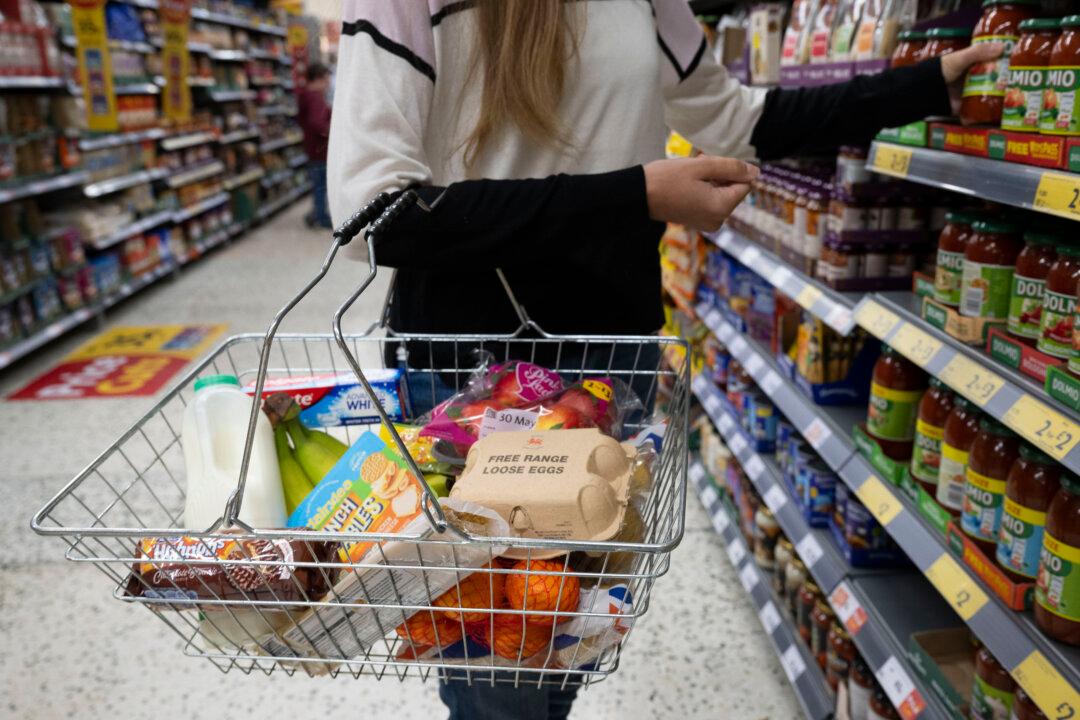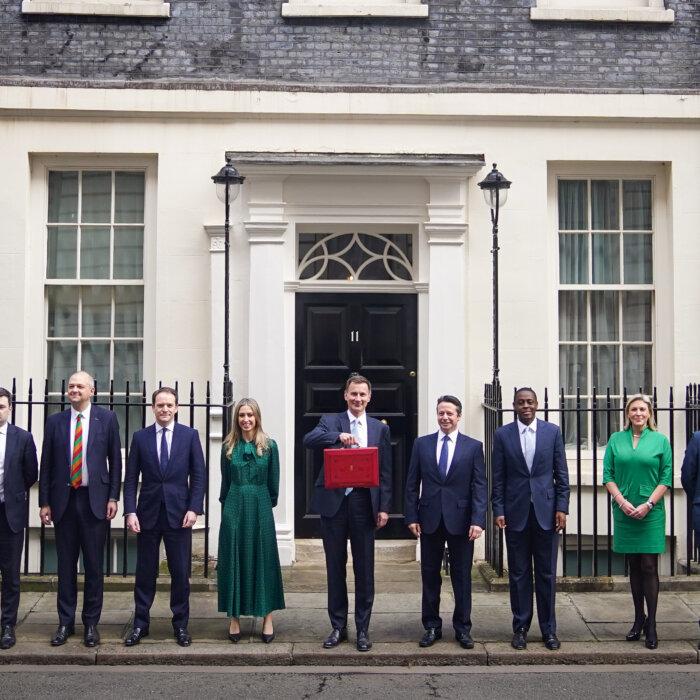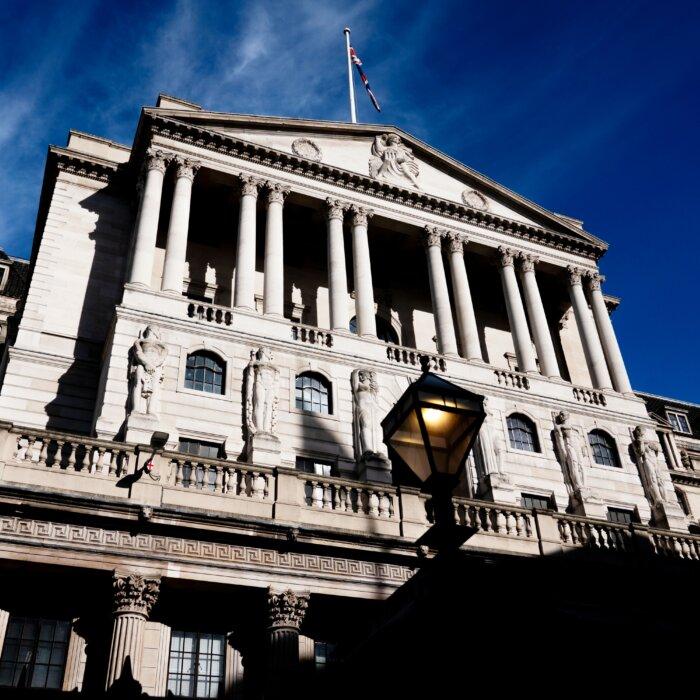Inflation eased in February, reaching the lowest headline rate for nearly two-and-a-half years, official data has shown.
At 3.4 percent, as reported by the Office of National Statistics on Wednesday, the rate is still higher than the Bank of England (BoE) target of 2 percent. Chancellor Jeremy Hunt said it was forecast to hit the target within months.
Trends
The largest downward contributors to the monthly CPI rate came from food and non-alcoholic beverages, as well as restaurants and hotels.The annual rate for housing and household services was at 2.9 percent in February, up from 2.5 percent the previous month.
“Food prices were the main driver of the fall, with prices almost unchanged this year compared with a large rise last year, while restaurant and cafe price rises also slowed. These falls were only partially offset by price rises at the pump and a further increase in rental costs,” said Grant Fitzner, chief economist at the ONS.
The annual rate for food—at 5 percent in February—has eased for the 11th consecutive month from 19.2 percent in March 2023. The February figure is the lowest annual rate for food, restaurants, and hotels since January 2022.
Mr. Hunt said that food inflation easing was “most encouraging” and showed that the government’s plan is working.
“This sets the scene for better economic conditions which could allow further progress on our ambition to boost growth and make work pay by bringing down national insurance as we work towards abolishing the double tax on work,” the chancellor added.
Bank of England
Ms. Reeves’s comments come ahead of Thursday’s meeting of the BoE’s Monetary Policy Committee (MPC), which sets the interest rate. The slowdown of inflation may move some MPC members to consider lowering the BoE’s benchmark rate, which currently stands at 5.25 percent.The bank expects inflation to hit its 2 percent target in the second quarter 2024, before increasing again in subsequent quarters.
“This profile of inflation over the second half of the year is accounted for by developments in the direct energy price contribution to 12-month inflation, which becomes less negative,” the BoE explained.
The 12.3 percent fall in the energy price cap that comes into force on April 1, is likely to contribute to lower inflation in the coming months.







